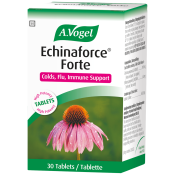Wash your hands
Direct contact mostly spreads common cold and flu viruses. Try to avoid people with colds or flu. Viruses often spread from their hands to objects like door handles, the telephone or the keyboard and can live for hours on these surfaces. The next person touching the same object could then touch their face, transferring the cold or flu viruses directly to their nose or mouth. So, wash your hands often or use alcohol-based hand sanitisers to help prevent this.
Use tissues and throw them away
These are great for preventing the spread of colds and flu, and necessary when you need to blow that non-stop running nose when you are sick but remember that they can harbour viruses and contaminate any surface they meet.
Drink enough water
Avoid becoming dehydrated. Healthy adults need around two litres of still water each day. Drinking water flushes out your system and helps keep your immune system strong.
Control stress
It is well known that stress can weaken your immune system and may make you more likely to catch a cold or the flu than when you are calmer. Stress impacts your immune system.
Eat well
A diet rich in whole foods and fresh fruit and vegetables as well as raw nuts and seeds can help you avoid many health problems. Foods rich in vitamins A and C such as citrus fruit, dark blue and red berries, mangoes, apricots, carrots and beetroot support the immune system. Avoid sugar and sugary foods and drinks because sugar weakens the immune system.
Avoid alcohol
We know this seems boring, but drinking excessive amounts of alcohol is bad for immune cells, which become disorientated and confused...just like us!
Get enough fresh air
Avoid getting stuck in a room full of people with stale air. Open the windows or get out into fresh air and breathe deeply. This helps the lymphatic system move protective immune cells around the body. Remember to ventilate and air your bedroom too.
Get more sleep
Achieving restful sleep each night (seven to eight hours is the average requirement) helps the body repair itself and build the immune system. If you need help sleeping, see our tips on how you can sleep better.
Avoid smoking
This is an irritant to the delicate tissues of your respiratory tract and increases your susceptibility to viruses that cause colds and flu.
Keep warm
When you are feeling a bit vulnerable to infection, stay out of the cold night air and avoid the direct stream of air-conditioned air.



